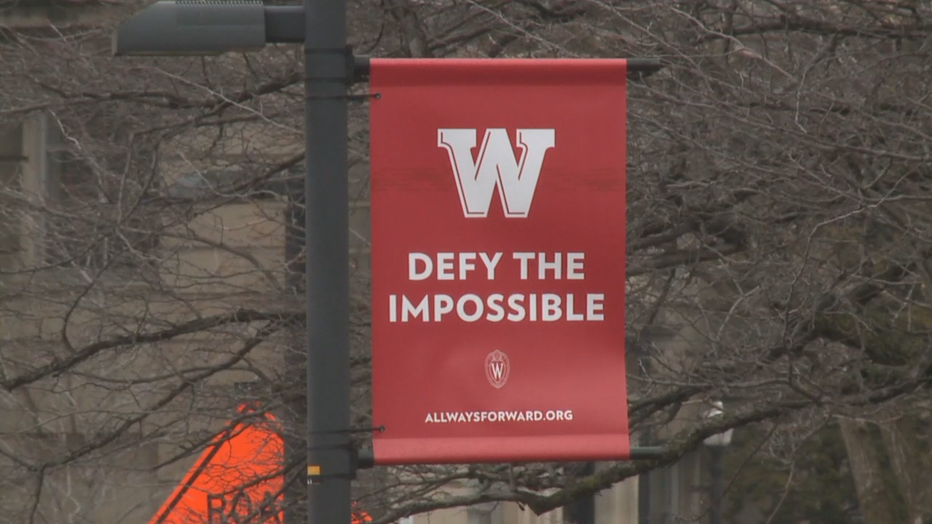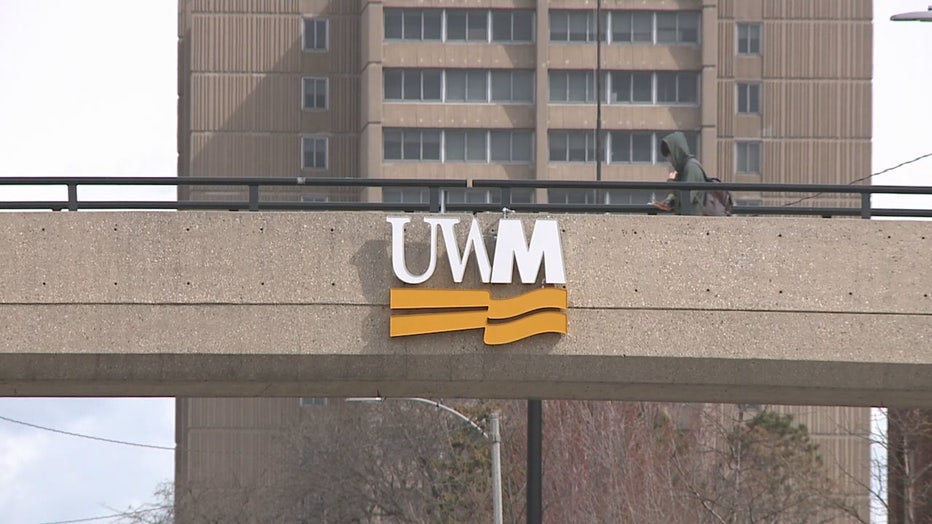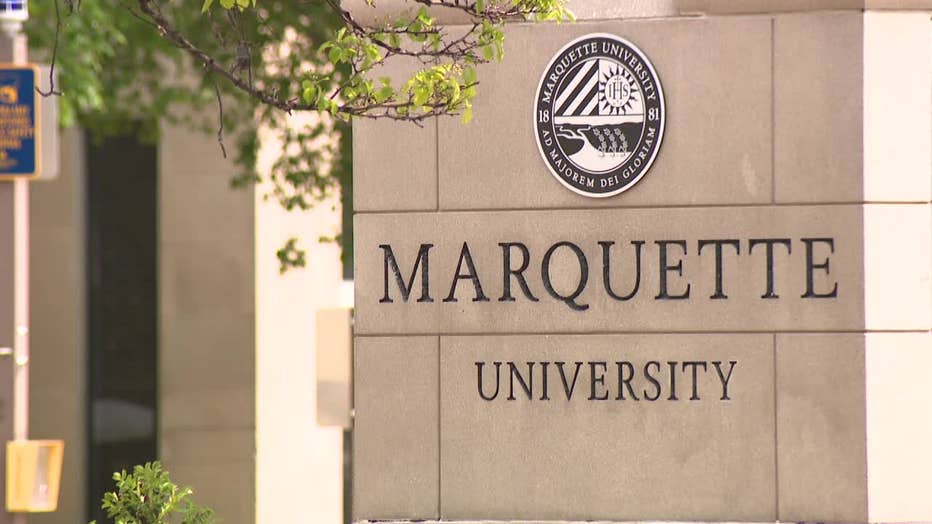SCOTUS 'affirmative action' ruling, in Wisconsin, UW most affected

Affirmative action ruling, Wisconsin impact
At the University of Wisconsin, they did consider race as part of their admission process. Marquette University filed a brief with the court in support of ?affirmative action."
MADISON, Wis. - It's helped diversify college campuses for decades, but on Thursday, June 29, the United States Supreme Court ruled "affirmative action" unconstitutional.
At the University of Wisconsin-Milwaukee, leaders said they don't think this ruling will change its admission process, but it does affect other schools.
At the University of Wisconsin, they did consider race as part of their admission process.
Marquette University even filed a brief with the court in support of "affirmative action."
After the SCOTUS ruling, those at both schools are trying to determine what to do next.

University of Wisconsin-Madison
"Affirmative action, at least as a formal practice, is dead across the board," said Howard Schweber, UW-Madison professor emeritus.
In a 6-3 vote on its political leanings, SCOTUS Thursday deemed "affirmative action" unconstitutional, ordering colleges and universities must consider applicants based only on their experience and not on the basis of race.
"Many universities have, for too long, done just the opposite," Chief Justice John Roberts wrote.
SIGN UP TODAY: Get daily headlines, breaking news emails from FOX6 News

"This will certainly disadvantage students who don't have access to college counselors and consultants and tutors," said Schweber. "In other words, poor minority students."
The opinion also creates a loophole, allowing prospective students to mention their experiences with race in their personal statements.
In dissent, Justice Ketanji Brown Jackson wrote; "With let-them-eat-cake obliviousness, today, the majority pulls the ripcord and announces colorblindness for all".
Wisconsin Democrats agreed.
"We are incredibly disappointed by the decision that came out of the U.S. Supreme Court," said Assembly Minority Leader Greta Neubauer. "It will undermine our schools here in Wisconsin."
Republicans said it's a step toward ending racial discrimination.

Marquette University
"It was wrong in the 1950s for people to do that, when they discriminated against people who were a minority," said Assembly Speaker Robin Vos. "It's equally wrong today to do it against people of any race."
Vos said Republicans will work to repeal "discriminatory laws" in the fall.
UW-Madison is most affected by this due to its enrollment size and use of race in admissions.
The chancellor said while they will comply with the law, the school remains committed to diversity.
Statement from Milwaukee School of Engineering
"While MSOE is not directly affected by the U.S. Supreme Court’s decision on affirmative action, we are committed to fostering our mission of being the university of choice for those seeking an inclusive community of experiential learners driven to solve the complex challenges of today and tomorrow.
We admit students based on their ability to succeed in our programs, their high school background and experience, as well as their high school GPA and the highest level of math they’ve completed. MSOE will continue to be a welcoming community and provide inclusive, meaningful experiences for all."
Statement from Kate Lundeen, Alverno College
"The Supreme Court ruling won’t change Alverno’s admissions policies or criteria. Alverno is proud to be one of the most diverse campuses in the state – 25% of our students are Hispanic or Latinx, 18% are Black, 6% are Asian, and 4% are two or more races. We were also the first Hispanic-Serving Institution in the state of Wisconsin. Students from all backgrounds and experiences are drawn to us because of the programs we offer, our unique abilities-based curriculum, and because Alverno has a long history of educating strong, independent women. Alverno will continue to be an intentionally welcoming, supportive and engaging community."
Statement from Mark Pitsch, University of Wisconsin System
"We are reviewing the decision to see what if any impact it may have on our universities. Like others across the country, we will assess next steps surrounding this issue and abide by the law."
Statement from UW-Milwaukee Chancellor Mark Mone
"Dear UWM Community,
I am writing with a message in response to today’s U.S. Supreme Court decision in Students for Fair Admissions v. Harvard, which restricts higher education institutions across the country from considering a person’s race in college admissions. UWM does not anticipate this decision to significantly impact our admissions practices. Nonetheless, it is an important decision for colleges and universities, their students, faculty and staff, and prospective students and their families.
UWM is and always will be a welcoming place for all individuals from various backgrounds, experiences and beliefs, and remains committed to diversity, equity, inclusion and belonging. UWM is the most diverse university in the state, and we have a unique mission – one that charges UWM to "further academic and professional opportunities at all levels for women, minority, part-time, and financially or educationally disadvantaged students."
We focus on meeting the needs of students where they are — with student support centers that offer programs, community and a strong voice for Black, Indigenous, Asian, Latinx, LGBTQIA+, women, and active-duty military and veteran students.
I, along with other UWM leaders, will continue discussions at UWM and with our colleagues at UW System about how this decision might otherwise affect our three campuses."
Statement from Marquette University President Michael Lovell
"Dear Marquette community,
During the past year, we have been closely following discussions around affirmative action related to the U.S. Supreme Court’s decision on whether universities can continue to consider race as a factor in college admissions. Marquette University was founded in 1881 to educate a burgeoning immigrant population, and that commitment remains paramount to how we fulfill our Catholic, Jesuit mission. Today, with 28% of our overall student body identifying as students of color and 23% as first-generation college students, we must continue our work toward greater inclusivity and belonging in our campus community.
Preparing students to lead means we must ensure their experiences and environment on campus include the diverse people and perspectives they will encounter throughout their lives. Our commitment to a diverse university community helps us to achieve excellence by promoting a culture of learning, appreciation and understanding. Creating and maintaining the culture we desire also inherently requires each person on campus to take ownership of that responsibility. We must proactively go beyond our comfort zones and seek perspectives we may not have considered before.
Today’s Supreme Court ruling
In August 2022, Marquette joined an amicus ("friend of the court") brief with 56 other Catholic universities and colleges that urged the U.S. Supreme Court to uphold affirmative action in the two cases before them.
This morning, the U.S. Supreme Court issued its long-awaited decision in two cases involving the use of race by higher education institutions in their admissions processes. In a 6-3 decision, the Supreme Court held that using an applicant’s race as part of the admissions process violates the Equal Protection Clause in the U.S. Constitution. In short, the Supreme Court’s decision will prohibit higher education institutions from considering an applicant’s race when evaluating an individual for admission.
Knowing the Supreme Court was considering these cases, Marquette convened a multi-disciplinary team in late 2022 to plan for how potential court decisions may affect different areas of campus, including admissions, financial aid, fundraising, academic and support programs, and communications. This group will continue to meet regularly to review our policies and practices to make sure we comply with the Supreme Court’s ruling.
Marquette will continue to do everything we legally can to recruit a diverse student body that reflects the world around us and enhances the transformational education we seek to provide. This is our commitment to our current and future students, to our faculty and staff, and to the greater Milwaukee community. Improving access to a high-quality education has always been a priority for Marquette, and that will not change.
Investing in student success and personal well-being
Attracting a diverse student body is about much more than admissions decisions –– it requires an investment in student success across academics, financial support and personal well-being. Work is underway on the new Lemonis Center for Student Success, which will provide wraparound services for students across all majors, academic abilities and backgrounds to enrich and expand student opportunities. The Wellness + Recreation project will bring together services that support the physical and mental health needs of the Marquette community.
We want every student who enrolls at Marquette to stay, learn and thrive here — to truly feel they are home at Marquette.
Our collective responsibility
Each of us at Marquette has a duty to help create an inclusive, welcoming campus where everyone feels a strong sense of belonging — this cannot be the work of just certain offices and programs.
This challenging work demands that we listen earnestly and discuss honestly with one another. Be genuinely curious. Ask questions and invite the discomfort necessary for growth. The more we learn about one another, the better we will identify solutions and work toward making our campus a better place for all."

